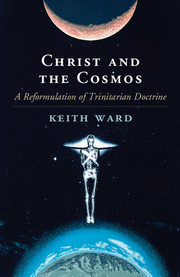Book contents
- Frontmatter
- Contents
- Preface
- Acknowledgements
- PART I THE THREEFOLD NATURE OF THE DIVINE BEING
- PART II THE BIBLICAL SOURCES OF TRINITARIAN THOUGHT
- PART III THE TRINITY, IMMANENT AND ECONOMIC
- PART IV THE SOCIAL TRINITY
- 22 Persons and Substances
- 23 The Idea of a Personal and Free Creation
- 24 The Logical Uniqueness of Persons
- 25 The Divine Nature and Freedom
- 26 Freedom in God and in Creatures
- 27 Persons as Necessarily Relational
- 28 An Ontology of the Personal?
- 29 Intra-Trinitarian Love
- 30 Infinite Gods
- 31 Divine Love and Necessity
- 32 Love and Alterity
- 33 Trinity versus Monotheism
- 34 The Passion of Christ
- 35 God and Abandonment
- PART V THE COSMIC TRINITY
- Bibliography
- Subject Index
- Name Index
25 - The Divine Nature and Freedom
from PART IV - THE SOCIAL TRINITY
Published online by Cambridge University Press: 05 September 2015
- Frontmatter
- Contents
- Preface
- Acknowledgements
- PART I THE THREEFOLD NATURE OF THE DIVINE BEING
- PART II THE BIBLICAL SOURCES OF TRINITARIAN THOUGHT
- PART III THE TRINITY, IMMANENT AND ECONOMIC
- PART IV THE SOCIAL TRINITY
- 22 Persons and Substances
- 23 The Idea of a Personal and Free Creation
- 24 The Logical Uniqueness of Persons
- 25 The Divine Nature and Freedom
- 26 Freedom in God and in Creatures
- 27 Persons as Necessarily Relational
- 28 An Ontology of the Personal?
- 29 Intra-Trinitarian Love
- 30 Infinite Gods
- 31 Divine Love and Necessity
- 32 Love and Alterity
- 33 Trinity versus Monotheism
- 34 The Passion of Christ
- 35 God and Abandonment
- PART V THE COSMIC TRINITY
- Bibliography
- Subject Index
- Name Index
Summary
The second major characteristic of ‘persons’ on Zizioulas’ account is that persons are distinguished by their possession of ‘absolute freedom’. At least in the case of divine persons, he says that they are not even constrained by having a pre-existing nature to which they must conform. Once again he has highlighted something of great importance to human persons: the reality of creative and moral freedom. We may well want to say that a being without such freedom, or at least without the capacity for it, is not a person. But does it make sense to say that such freedom is ‘absolute’? Is that even logically possible? He admits that it is not possible for human persons, who have a pre-existing nature which places a logical limit on what they can do. But he thinks it is possible for, and definitive of, divine persons. But can anything – whether God or the Father, ‘the cause of all’ – exist without some nature which defines what it is? Even to say that something is free is, after all, to define its nature.
The essence or nature of something is Aristotle's formal cause – what it is or what makes a thing what it is and not another thing. It may seem that everything that exists must have a nature, in this sense. It must be what it is, and not another thing. Created beings all have natures, given to them by the Creator. But the Creator too must have a nature, which is precisely that it is the uncreated creator of everything other than itself. If we believe there is a creator, we know at least that much about its nature, even if there are innumerable other things that we do not know about it.
Theologians sometimes resist the idea that the creator has a nature, on the grounds that God is not the instantiation of a class of things, one object among others which share a property – perhaps the property of ‘existing’.
- Type
- Chapter
- Information
- Christ and the CosmosA Reformulation of Trinitarian Doctrine, pp. 158 - 165Publisher: Cambridge University PressPrint publication year: 2015



